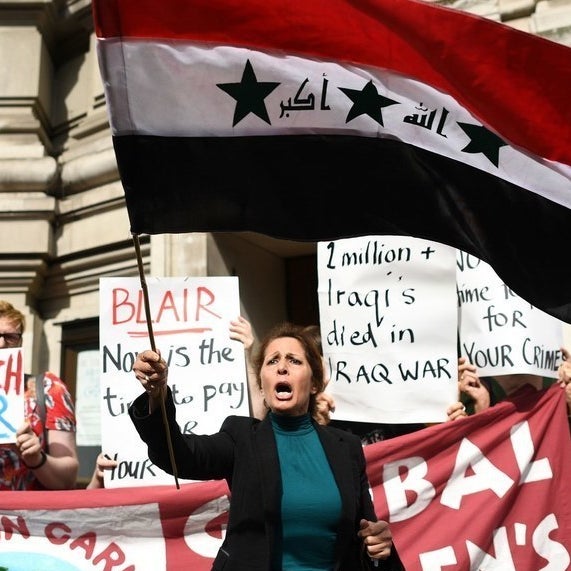

After seven years, Sir John Chilcot finally published his report on the UK's role in the Iraq war last week, just days after 250 people died in a suicide attack in Karrada, Baghdad.
Following the report's unveiling, current prime minister David Cameron gave a speech in parliament, former prime minister Tony Blair held a two-hour press conference, and newspapers responded with headlines accusing Blair of taking the UK to war unnecessarily.
But what do the millennial British-Iraqis who were at school and university in the UK in 2003 have to say about the findings of the report – and the war that shaped so much of their lives growing up?
Aysha, 23, an Iraqi Transnational Collective member from London

Speaking about the Karrada attack, the deadliest explosion to hit the Iraqi capital since 2003, Londoner Aysha said: "It's a manifestation of the occupation from 2003. All of this violence is as a result of what happened then. So for us knowing that is painful enough, but when I was my way to the vigil, all over the newspaper was Tony Blair's face and the Chilcot inquiry. I went though the paper, and I can honestly say there wasn't enough about the Iraqis who had lost their lives."
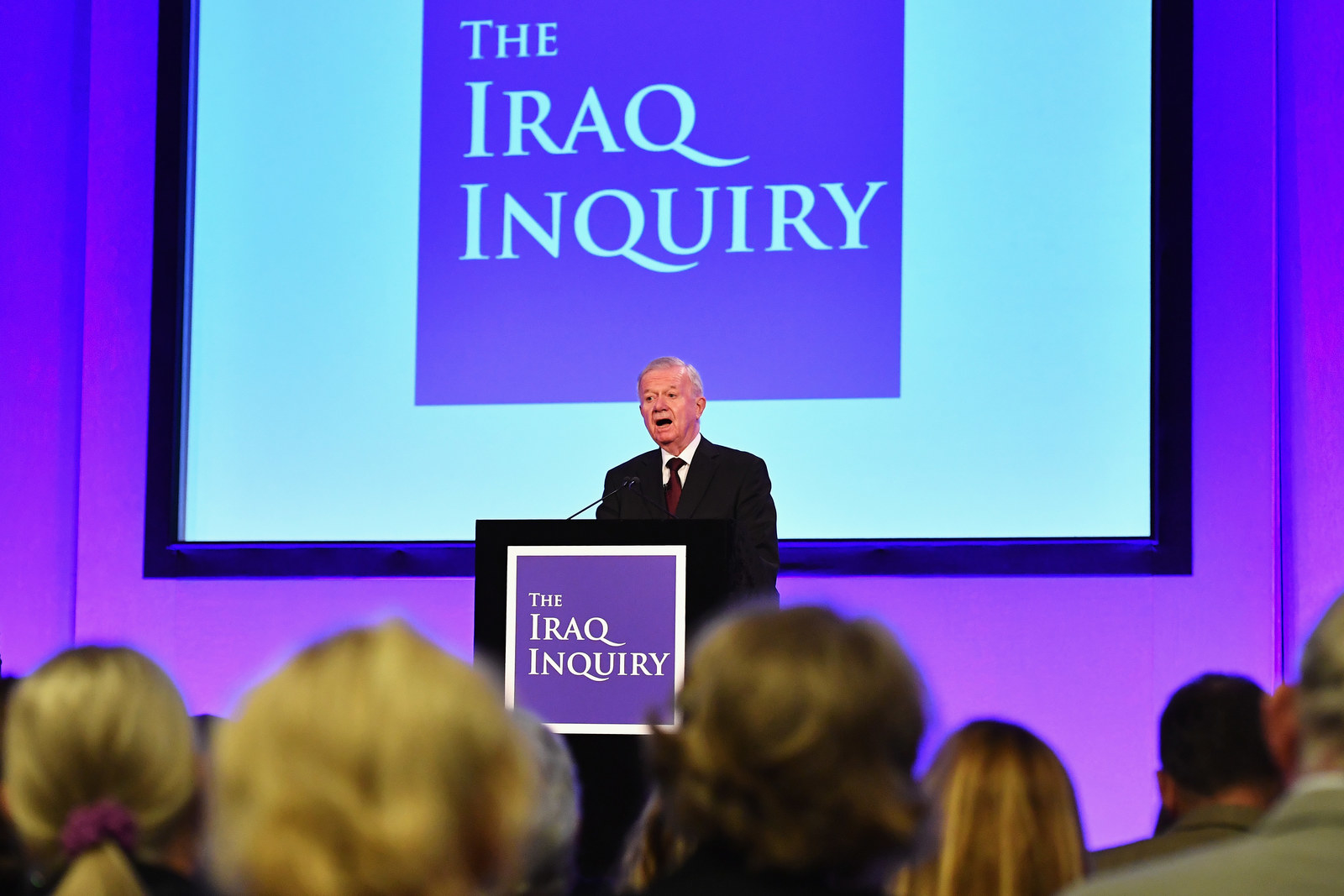
"And then you find out the Chilcot inquiry doesn't tell you anything new. All it does is justify – in an official sense – everything we already knew is the truth. We had a 1-million-person protest. No one bought the argument. We all knew it was wrong – the UN resolution came out and it was technically illegal. So for us it wasn't even closure, it was reopening old wounds that we already know about.
"We want justice so it doesn't happen again for another country. Whether that means taking Blair to trial or reconstruction in Iraq, or whatever it might be. We have to ensure somewhere in the books, in British history, it's taught in schools that this should never happen again. Never again."
Mohammad Sahib, 29, a doctor from London
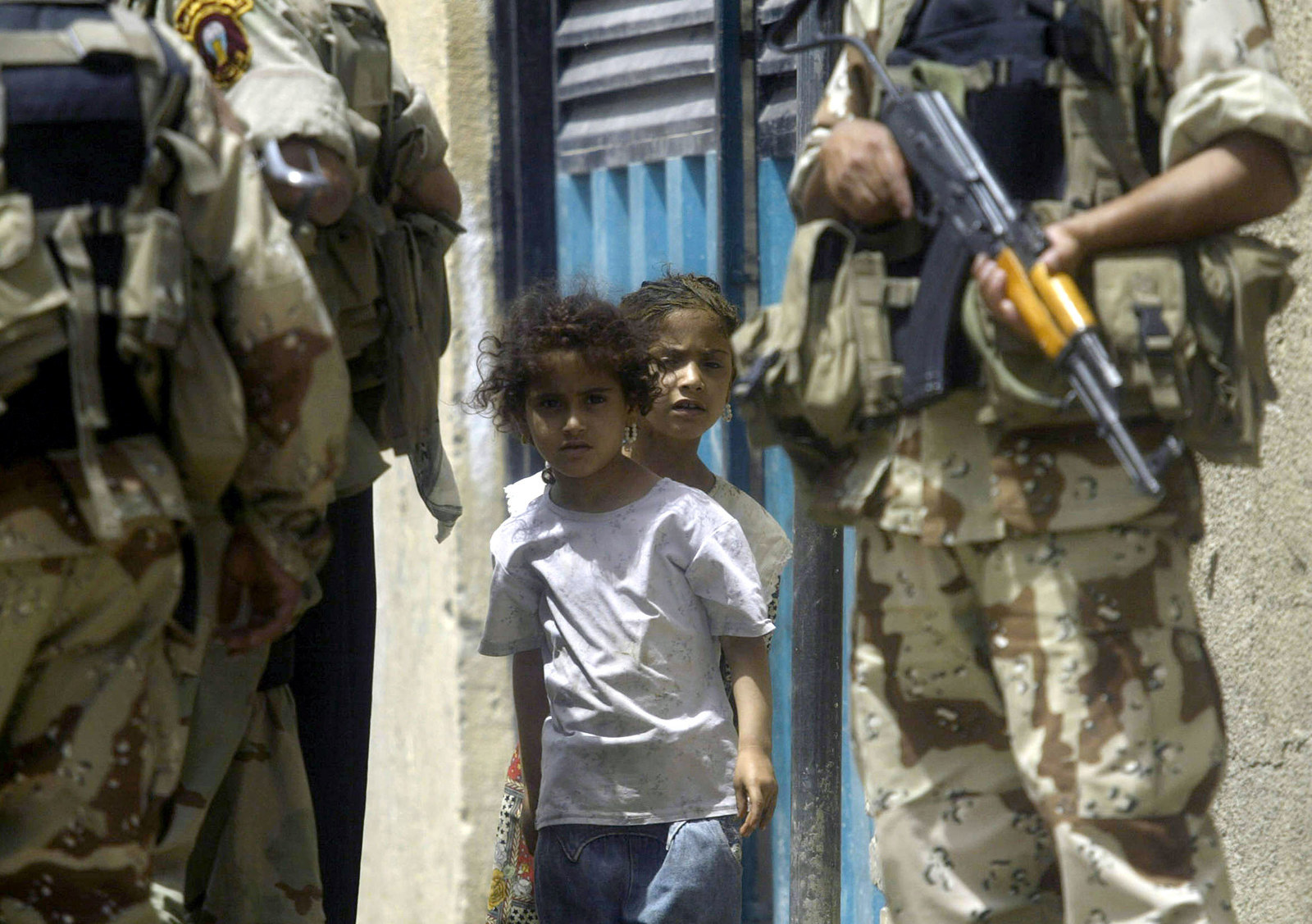
"It's a very sad time," said Mohammad Sahib, speaking just after completing a night shift at a hospital in London. "The Chilcot inquiry has been beyond disappointing really. Beyond disappointing. Essentially it hasn't done anything for us. It's even more important now as we need more accountability after what happened in Karrada. We've heard nothing new.
"I think it's been an absolute farce. It's now stated as fact that there was no planning ahead. But that's been evident, and has been seen and documented, and historians have written about it for the last 10 years. We know there's been no planning for the war. I don't think [Chilcot] adds any value. What it could have done for us here, for British citizens, is show that justice can be served to those who transgress their abilities, take people to war, and cause the deaths of millions. That's how we feel.
"No one trusts Tony Blair. And to be honest, one of the problems of the reaction to Chilcot is the overbearing amount of analysis is [about] whether we can't take Blair to The Hague, and I think Blair is just one pawn in this system of going to war while everything else is being neglected, [including] the US role and those who supported it."
Hassan Ahmed, 32, an IT consultant from Manchester
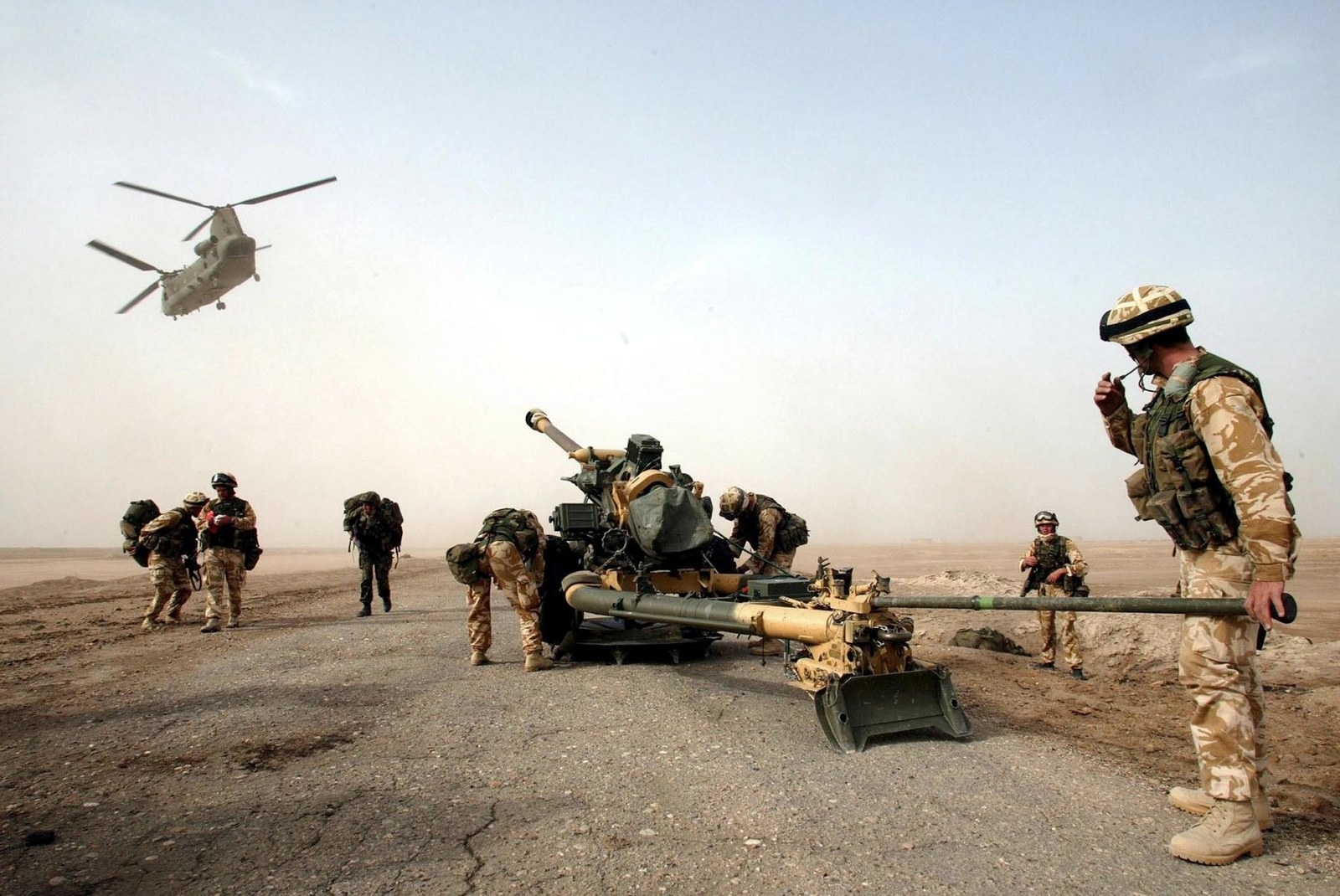
Hassan Ahmed, who has visited Iraq three times and calls Saddam Hussein a "murderous man, dictator, who led a mafia-like state", said the Chilcot report overlooked many issues.
"It doesn't really question the motives of Tony Blair, which are much more important than the actual act of taking Saddam down," he said. "The second thing is it doesn't talk about the overall foreign policy, decision-making, and strategy in the region. Going to war in the way they did, and the motivations they used and the strategy they had in place, is where we are where we are today.
"The Iraqi people have seen nothing but terror and difficulty for 40 years. They lived for three decades under the tyranny and the torture of Saddam, and subsequent to that they now face the continuous barrage of terrorism from Da'esh [aka ISIS] and other terrorist organisations.
"So we are very sad and angry the Iraqi people have been subjected to this, due to the foreign policy of the Western world or toward the region which meant that keeping him for a certain amount of time then toppling him after a certain amount of time when it didn't suit their interests."
He went on to say the West has a job in improving the security situation in Iraq, adding: "They're not doing enough. They've pretty much washed their hands off and left Iraq to its own self."
Zainab, 28, an editor from London
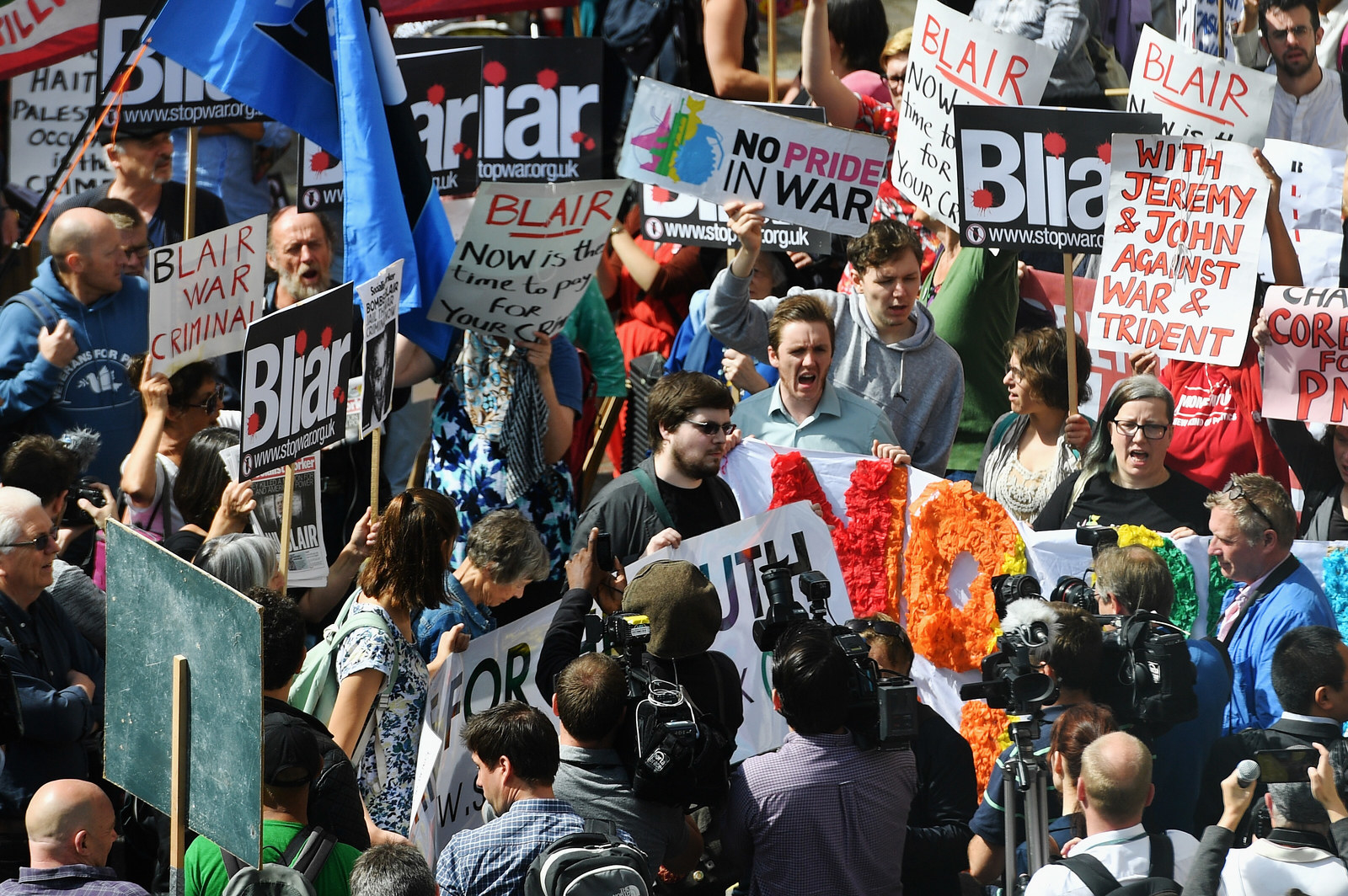
Zainab – whose mother's brother was kidnapped and killed by Saddam's regime in the 1980s, and whose father's brother was killed in 2003 by an American bullet when he got caught up in crossfire in Baghdad – said Chilcot was disappointing overall.
"Until a couple of months ago, I had almost forgotten about it," she said, "because it's one of those things that has been buried, and when I realised the Chilcot report was coming out, I was a bit nervous. I was really quite nervous, especially because of the political atmosphere in the UK.
"It felt like a confirmation of a lot of things we already knew and in some ways it was well, there you go, the truth has come out, but in other ways I don't really feel justice is being served.
"It's been such a long, drawn-out thing, and Chilcot is obviously one investigator, and there's so much information that is being buried in all of the mess.
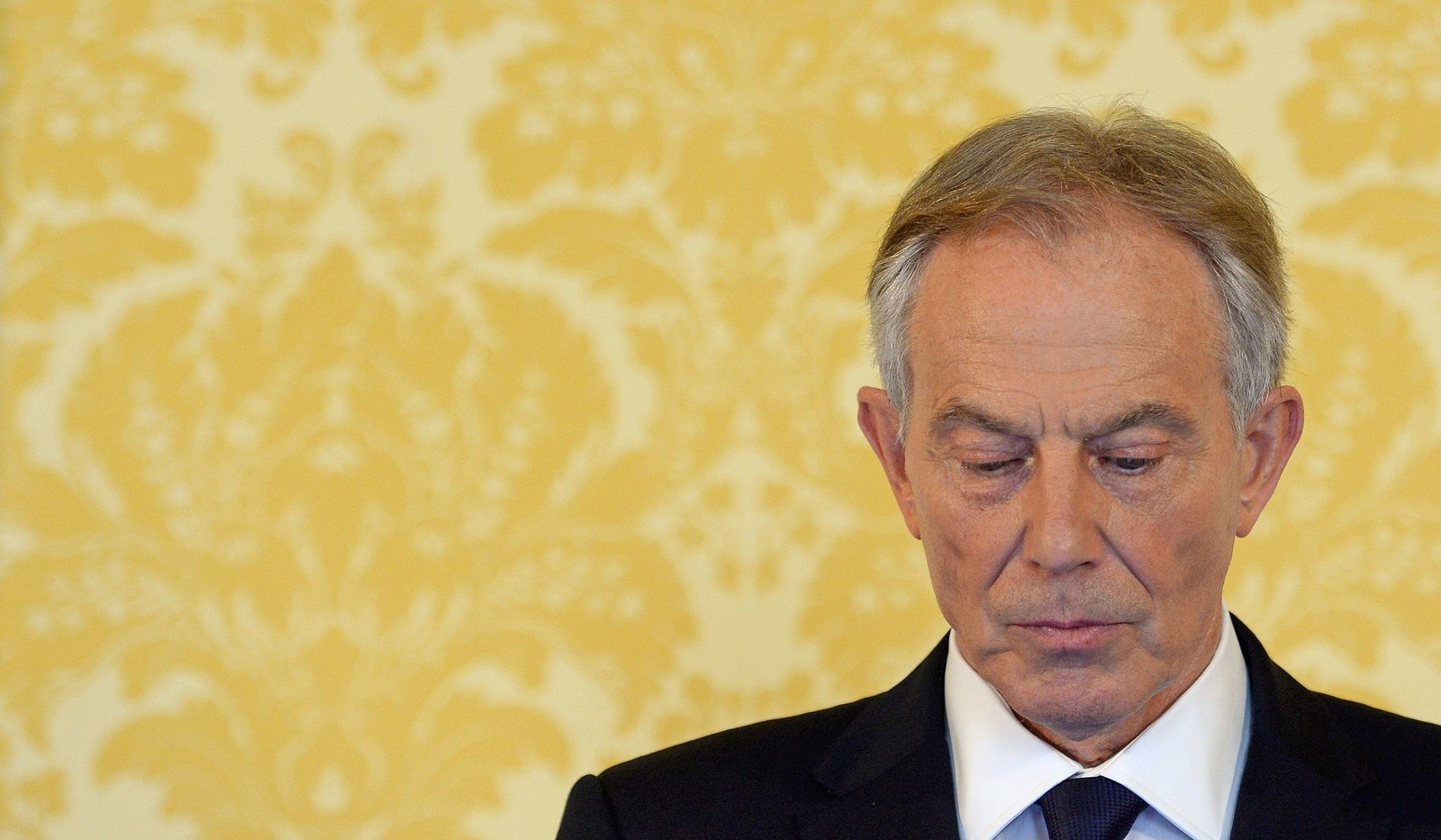
"On the one hand it would be good to have a conclusion, but on the other hand it's dissatisfactory because we don't know if any of the key war players will be brought to justice – especially a figure such as Tony Blair, who has been [taking advantage of] his involvement in the Middle East and in quite an abhorrent, hypocritical, ironic way, the fact that he's made his millions in the past decade off the back of postwar Iraq and his involvement in the Middle East. It just seems not enough loose ends have been tied up.
"I think a lot of people would like to see Tony Blair imprisoned and that's not likely to happen as he seems to have impunity."
Kariem Hussaini, 28, a marketing adviser from London
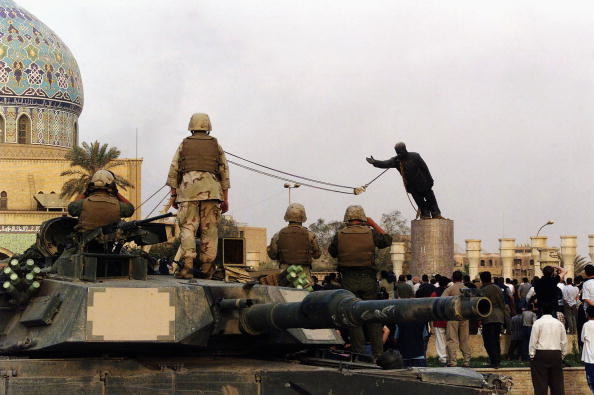
"My grandmother was one of the victims who was poisoned in jail during the time of Saddam," said Kariem Hussaini, whose family is from Karrada. Although Hussaini supported the Iraq war at the time, he said the lack of post-invasion planning meant it had been a failure.
Recalling his reaction to the invasion of Iraq, he said: "I think at the time when it happened I was obviously young, and most Iraqis thought, Once Saddam goes we're going to go back, and we had that ambition – that was the long-term vision that most Iraqis outside of Iraq had.
"I feel like the media isn't portraying the victims of terrorism around the word in an equal or unbiased way. I feel like the blood of an Iraqi is somehow different to the blood of [people who are] French and British, or Belgian. I feel like it's not much of a big deal and that really upsets me, but it's exactly the same terrorists."
On the Chilcot inquiry's findings, he said: "I think what's been going on the last few days is we haven't been told everything. What Tony Blair has been saying is he hasn't changed his stance and said he'd do it again.
"You hear many things uncovered [over the years] that happened during the war, after the war, and leading up and how certain policies were made and how they were not ready. It goes back to postwar: That was a big big failure for the UK government."
